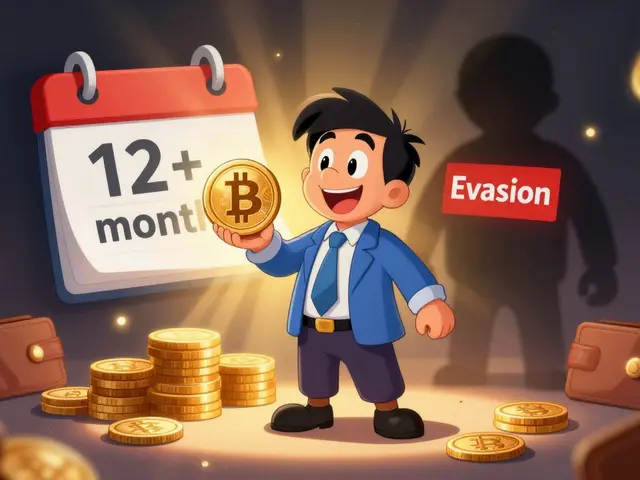Compare the top crypto exchanges in 2025-Coinbase for beginners, Binance for traders, Kraken and Gemini for security, eToro for copying investors, and Uphold for multi-asset trading. Find the right platform for your needs.
Coinbase: What It Is, How It Works, and What You Should Know
When you think of buying crypto, Coinbase, a U.S.-based cryptocurrency exchange that lets users buy, sell, and store digital assets like Bitcoin and Ethereum. Also known as Coinbase Global, it was one of the first platforms to make crypto easy for regular people — no tech skills needed. But behind its clean interface and ads on TV lies a platform that charges higher fees than most, locks your assets by default, and doesn’t give you full control over your keys. That’s not a bug — it’s by design.
Many people use Coinbase because it feels safe. It’s listed on the Nasdaq, follows U.S. regulations, and has customer support you can actually reach. But safety comes at a cost. Unlike decentralized exchanges like Uniswap or PancakeSwap, Coinbase acts as a middleman. When you buy Bitcoin on Coinbase, you don’t own the actual Bitcoin — you own a claim to it, held in their wallet. If they freeze your account (and they have), you can’t move your funds. Compare that to self-custody wallets like MetaMask, where you’re in charge — no permission needed.
What about the other stuff? Coinbase offers staking for Ethereum and other coins, a crypto rewards debit card, and even a learning program that pays you small amounts of crypto for watching videos. These features sound nice, but they’re mostly marketing hooks. The real money maker? Trading fees. Coinbase charges up to 4% per trade on small purchases — more than most exchanges. And if you’re using Coinbase Pro (now called Advanced Trade), you’ll still pay maker-taker fees that add up fast if you trade often.
Some users stick with Coinbase because it’s simple. Others leave after realizing they could’ve bought the same Bitcoin for 80% less elsewhere. The platform doesn’t support most new tokens, especially those from smaller chains. You won’t find obscure DeFi coins, memecoins, or experimental projects here — and that’s intentional. Coinbase plays it safe. It’s built for beginners who want to dip their toes in, not for traders chasing alpha or developers building on Layer 2s.
And then there’s the regulatory side. Coinbase works hard to stay compliant. That means it bans users from certain countries, freezes accounts tied to suspicious activity, and complies with government requests. If you’re in a country where crypto is restricted — like Qatar or Bangladesh — you won’t find Coinbase helpful. Even in the U.S., your account can be frozen without warning if they flag a transaction. It’s not malicious — it’s just how regulated finance works.
So who should use Coinbase? If you’re new, want to buy your first Bitcoin, and don’t care about fees or control, it’s fine. But if you’re serious about crypto — holding long-term, trading frequently, or using DeFi — you’ll outgrow it fast. You’ll need a wallet, a DEX, and the willingness to learn how to secure your own keys. Coinbase gets you started. But it doesn’t help you grow beyond the basics.
Below, you’ll find real reviews and breakdowns of crypto platforms, airdrops, and projects — some connected to Coinbase, most not. You’ll see what happens when people trust exchanges too much, how airdrops really work, and why some tokens vanish overnight. This isn’t a promo page. It’s a reality check.





